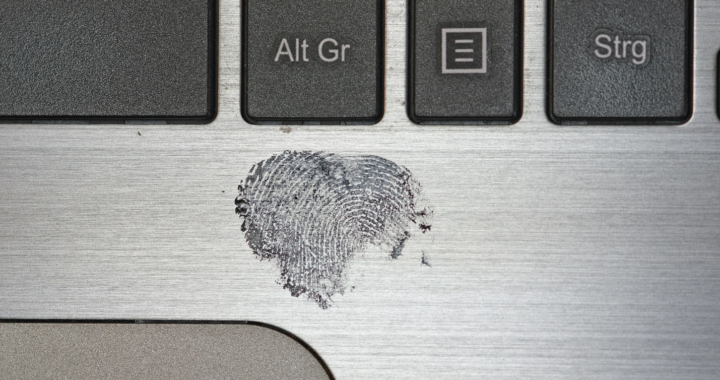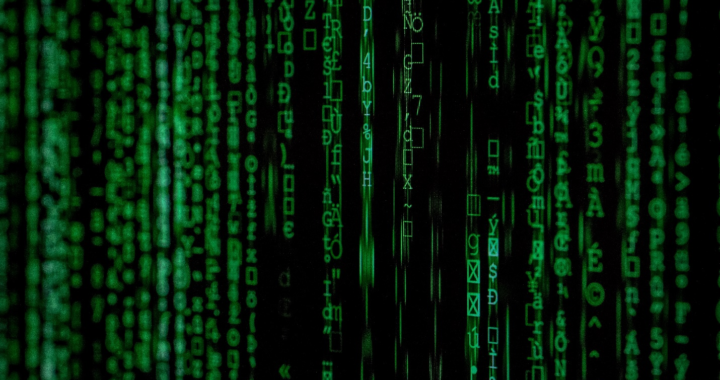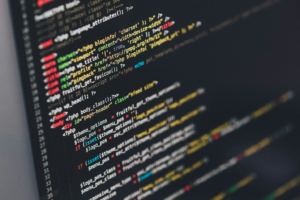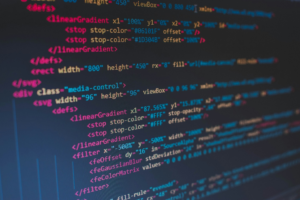Imagine a bank robber who meticulously plans their heist, disables alarms, and cracks the vault – but forgets to wipe their fingerprints clean. That’s the digital age of crime. While cybercriminals may operate from remote locations, their actions leave a trail – a digital footprint – that can be meticulously followed by computer forensics experts.
According to a report by Cybersecurity Ventures, global cybercrime costs are projected to reach $10.5 trillion annually by 2025. This staggering statistic highlights the ever-increasing threat posed by digital criminals. Thankfully, computer forensics stands as a powerful weapon in the fight against cybercrime.
What is Computer Forensics?
Computer forensics is the scientific collection, preservation, analysis, and presentation of digital evidence. It’s a meticulous process that involves recovering deleted files, analyzing internet activity, and piecing together a digital timeline of events. This evidence is then used to identify perpetrators, understand the scope of the crime, and ultimately, bring cybercriminals to justice.
How Does Computer Forensics Track Down Digital Criminals?
The digital footprint left behind by cybercriminals can be vast and varied, encompassing a range of devices and online activity. Here’s how computer forensics investigators use their expertise to track down these criminals:
1. Recovering Deleted Files
When a file is deleted from a computer, it’s not truly erased from the storage device. Instead, the operating system marks the space occupied by the file as available for use by new data. This means that the file can potentially be recovered by computer forensics software unless new data has been written over it.
Here are some common techniques used for data recovery:
| Technique |
Description |
| File Carving |
This technique scans for fragments of deleted files based on known file signatures. File signatures are unique identifiers that can be used to identify the type of file (e.g., a document, an image, or an executable program). |
| Directory Analysis |
This technique examines the file system’s directory structure to identify entries for deleted files. Even though the file itself may be deleted, the directory entry may still exist. |
| Slack Space Analysis |
Hard drives and other storage devices often contain unused space, known as slack space. This space can sometimes contain fragments of deleted files. |
2. Piecing Together Fragmented Data
Over time, files can become fragmented as data is added, deleted, and modified on a storage device. Fragmentation occurs when a file is no longer stored contiguously on the disk but rather in scattered locations. This can make it difficult to analyze the contents of the file.
Computer forensics tools can employ various techniques to reassemble fragmented files. These techniques rely on analyzing metadata associated with the file, such as file headers and timestamps. By piecing together this metadata, investigators can reconstruct the original file structure.
3. Identifying Hidden Files or Applications
Cybercriminals may attempt to hide files or applications on a computer system to avoid detection. There are a number of ways to hide files, such as changing file attributes to make them hidden or using steganography techniques to embed data within other files.
Computer forensics investigators use a variety of methods to identify hidden files and applications. These methods include:
- Examining the file system for anomalies, such as files with unusual names or timestamps.
- Using specialized tools to scan for hidden files and folders.
- Analyzing steganographic techniques to identify data hidden within other files.
By employing these data analysis techniques, computer forensic investigators can extract a wealth of evidence from digital devices. This evidence can then be used to reconstruct a timeline of events, identify perpetrators, and bring them to justice.
Building the Case: Timeline Construction and Identifying Traces
Once the data analysis stage has yielded its treasures, computer forensics specialists turn their attention to building a cohesive narrative from the recovered digital fragments. Here’s a closer look at two crucial aspects of this process:
1. Timeline Construction: Weaving the Digital Tapestry

Imagine a detective board plastered with photos, notes, and strings connecting seemingly disparate clues. In the digital realm, the timeline serves a similar purpose. It’s the chronological reconstruction of events gleaned from the data analysis. Here’s how computer forensic investigators build a robust timeline:
- Timestamp Analysis:Every digital interaction leaves a timestamp – a digital footprint marking the date and time it occurred. Timestamps on files, system logs, and internet activity provide crucial anchor points for the timeline.
- Document Metadata:Beyond timestamps, documents often contain embedded metadata. This “data about data” can reveal details like creation dates, last modified times, and even the author of the document.
- Internet Activity Logs:Web browsers, email clients, and other applications meticulously record user activity. Analyzing these logs can reveal browsing history, login times, email communication, and even social media interactions.
- File System Analysis:Changes made to the file system, such as file creation, deletion, or modification, are often logged by the operating system. These logs can provide valuable insights into the sequence of events.
By meticulously examining these digital breadcrumbs, investigators can build a timeline that details:
- When a device was accessed.
- What files were accessed, modified, or deleted?
- What applications were used?
- What online activity occurred?
- Potential interactions with other devices or networks.
2. Identifying Traces: The Art of the Digital Detective
Cybercriminals, like traditional criminals, attempt to erase their tracks. However, the digital world leaves behind a persistent trail, no matter how faint. Here’s how computer forensic investigators sniff out these hidden traces:
- Browser History Analysis:Even in “incognito mode,” traces of browsing activity can linger. Examining cached data, cookies, and temporary internet files can reveal deleted browsing history.
- IP Address Tracking:Every device connected to the internet has a unique IP address. Analyzing IP addresses associated with suspicious activity can help identify the origin of the activity and potentially link it to a specific device or location.
- Metadata Analysis:As mentioned earlier, metadata embedded in files can be a goldmine of information. Investigators can analyze metadata for details like the origin of a document, the device used to create it, and even hidden timestamps within the file itself.
- Social Media Forensics:Social media platforms can provide a wealth of information about a user’s activity. Investigators can analyze social media posts, messages, and login times to identify connections and potential leads.
- Data Artifact Analysis:Sometimes, seemingly insignificant digital fragments can hold hidden clues. Deleted files, fragments of data, and even unused disk space can be analyzed for remnants of suspicious activity.
Beyond Data Recovery: The Versatility of Computer Forensics
While data recovery remains a core aspect of computer forensics, the field encompasses a broader range of applications. Here are some additional ways computer forensics can be utilized:
1. Digital Video Forensics: Unveiling the Truth Behind the Pixels
In today’s world, video evidence plays a critical role in countless criminal investigations. Security cameras, dashcams, and even personal recordings from smartphones can capture crucial moments of a crime. However, digital video can be manipulated or altered, raising questions about its authenticity. This is where digital video forensics steps in.
- Authenticity Verification:Computer forensic experts can analyze video files to determine if they have been tampered with. Techniques include examining timestamps, analyzing video compression artifacts, and searching for inconsistencies in frame rates or audio quality.
- Identifying Manipulations:Sophisticated editing software can be used to create deepfakes or alter video content in subtle ways. Digital video forensics experts can employ specialized tools to detect these manipulations, such as inconsistencies in lighting, motion analysis, and identifying traces of editing software used.
- Extracting Hidden Data:Modern video formats can embed metadata within the file itself. This metadata can include details like camera settings, timestamps, and even GPS coordinates. Additionally, steganographic techniques can be used to hide messages or data within the video itself. Digital video forensics experts can utilize specialized tools to extract this hidden data, potentially revealing crucial information about the video’s origin or content.
By employing these techniques, digital video forensics helps ensure the integrity of video evidence and can unearth hidden details that might be missed by the naked eye.
2. Incident Response: Picking Up the Pieces After a Cyberattack
Cyberattacks can have devastating consequences for businesses and organizations. In the aftermath of an attack, it’s crucial to understand the scope of the damage, identify the attackers, and implement measures to prevent future incidents. This is where computer forensics plays a vital role in the incident response process.
- Determining the Scope of the Breach:Computer forensics can be used to analyze affected systems and identify the extent of the attacker’s access. This can involve examining data access logs, identifying compromised files, and analyzing network traffic patterns.
- Identifying the Attackers:By analyzing digital evidence, such as malware samples, network logs, and communication channels used by the attackers, computer forensics investigators can help identify the perpetrators and potentially track them down.
- Preventing Future Incidents:The findings from a computer forensics investigation can be used to identify vulnerabilities exploited by the attackers. This information is essential for patching systems, implementing stronger security measures, and preventing similar attacks from happening again.
By providing a clear picture of the attack and its aftermath, computer forensics empowers organizations to respond effectively and mitigate future risks.
3. Employee Investigations: Maintaining Trust and Security

Internal investigations involving employee misconduct can be complex and require a delicate touch. Computer forensics can be a valuable tool in such investigations, helping to uncover evidence of wrongdoing and ensure a fair and thorough process.
- Employee Misconduct:If an employee is suspected of stealing company data, engaging in unauthorized online activity, or violating company policies, computer forensics can be used to examine their digital footprint. This may involve analyzing work emails, internet browsing history, and activity logs on company devices.
- Intellectual Property Theft:Protecting intellectual property is crucial for businesses. Computer forensics can be used to identify unauthorized access to sensitive data, track the movement of intellectual property files, and even identify attempts to exfiltrate data from company systems.
- Data Breach Investigations:If a company experiences a data breach, computer forensics can be used to determine the source of the breach, identify the type of data compromised, and understand how the breach occurred. This information is essential for notifying affected individuals, taking corrective measures, and preventing future breaches.
Eclipse Forensics: Your Trusted Partner in the Digital Age
The digital landscape is constantly evolving, and so are the tactics employed by cybercriminals. At Eclipse Forensics, we understand the critical role computer forensics plays in ensuring a safe and secure digital environment.
Our team of highly skilled and certified computer forensics consultants in Florida possesses the expertise and experience necessary to handle even the most complex investigations. We utilize cutting-edge technology and adhere to the strictest forensic protocols to ensure the integrity of the evidence we collect.
Whether you’ve been the victim of a cyberattack, suspect employee misconduct, or require assistance with digital evidence for a legal case, Eclipse Forensics is here to help. Contact us today for a consultation, and let our team of experts guide you through the complexities of digital forensics. With Eclipse Forensics on your side, you can be confident that no digital footprint will be left unturned in the pursuit of justice.























